Episodes
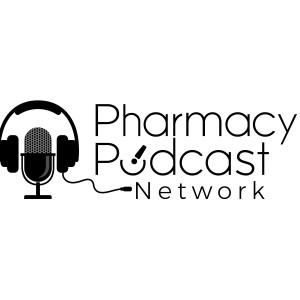
Wednesday Mar 29, 2017
Wednesday Mar 29, 2017
#PharmacyFutureLeaders
Academic Rotation and Critical Care
Guest: Sean Kane, Pharm.D.
Assistant Professor Rosalind Franklin COP
Today we're going to be talking with Sean Kane, PharmD, BCPS, is an Assistant Professor at Rosalind Franklin University of Medicine and Science in North Chicago, Illinois, and a Critical Care Pharmacist at Advocate Condell Medical Center in Libertyville, Illinois. Dr. Kane received his Doctor of Pharmacy degree at Butler University in 2010 and completed 2 years of residency, specializing in critical care at the University of Illinois at Chicago.
Dr. Kane is the creator of ClinCalc.com, an evidence-based clinical decision support website with educational tools for health care students and professionals. In addition, Dr. Kane is the creator and co-host of HelixTalk, Rosalind Franklin University's College of Pharmacy Podcast.
Kane, before we get started I wanted to hear a little bit about your leadership road, from Butler University in Indiana to Chicago as a PGY-1 and PGY-2 to your present academic position.
ClinCalc online
Rather than an interview format, we’re going to look at a point/counterpoint from Vol. 80, Issue 3 of the American Journal of Pharmaceutical Education about Experiential Education between Craig D Cox of Texas Tech’s College of Pharmacy and Craig K. Svensson of Purdue. Could you set the stage as to the primary points of contention, it seems Dr. Cox is responding to Dr. Svensson.
Academic Rotation Easy? Vs. Critical care 6:30 to 4:30?
Dr. Cox main points:
All rotations should involve the “medication use system”
MUS involves everything from drug discovery/development, prescribing, dispensing, administering, monitoring, etc.
It does not involve academic rotations
Non-MUS rotations are still valuable, but don’t make students practice-ready and therefore cannot substitute for the required APPE rotations that do involve MUS
An academic rotation during residency (not P4 year) may be more appropriate
Cox’s personal view after speaking with employers and practicing pharmacists is that most pharmacy students are NOT practice ready, therefore, we should maximize the number of MUS-relevant rotations
Dr. Svensson main points:
The concept of “practice ready” may not involve the MUS; pharmacy as a career path has been constantly changing for decades, so non-MUS career paths may be to come in the future
Increasing quantity may not be the right approach if most students are not “practice ready” upon graduation. Perhaps pre-APPE activities (such as simulation) can be improved and the QUALITY of APPE sites can be addressed.
It’s really hard to maintain quality within APPE sites – for many colleges, just finding APPE sites can be a challenge, let alone having (and enforcing) a bar for quality. More (quantity) is not always better and may not actually address the problem that Dr. Cox takes issue with.
Student development does occur in non-MUS rotations and should still be offered. Skills like leadership, entrepreneurship, the ability to teaching, etc. are valuable regardless of being related to MUS or not.
What is an academic rotation?
Restrict APPEs to Medication Use System
Two electives maximum (4,5,6 weeks makes this variable from 8 to 12 weeks)
Cox, “I would argue, that if designed correctly, teaching skills to become an effective preceptor could be a focus.”
Svensson “ In my opinion, the setting of postgraduate training is the most appropriate place for providing opportunities that give experience and insight into an academic position”
Sean Kane, Pharm.D. (email: sean.kane@rosalindfranklin.edu)
Tony Guerra, Pharm.D. Chair, Instructor Pharmacy Technician Program Des Moines Area Community College 2006 S Ankeny Blvd Bldg 24 Room 304 Ankeny, IA 50023 515-965-7192aaguerra@dmacc.edu
See omnystudio.com/listener for privacy information.
Learn more about your ad choices. Visit megaphone.fm/adchoices
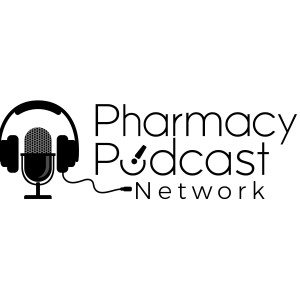
Friday Mar 10, 2017
Friday Mar 10, 2017
The Pharmacy Podcast
#PharmacyFutureLeaders
Managed Care / Health Policy / U of Minnesota
Today we're going to be talking with Ryan Cotten:
Ryan Cotten is a 4th year University of Minnesota PharmD student passionate about creating unique solutions by managing limited healthcare resources. Following his P2 year, he interned at ClearScript learning about clinical services and the PBM industry. After his P3 year, he was AMCP chapter president and led his team to the AMCP National P&T Competition. He was the lead author on a health policy research paper "Pricing History Analysis of Orphan Drugs (1983-2015)" which he presented at two national pharmacy conferences. He’s looking to work in a managed care pharmacy residency to further grow as a leader and practitioner.
Everyone’s leadership road is different, let’s start with where you are today, and how you got into your current position.
How do you feel you became a leader/innovator and how did the opportunities in Minnesota specifically help you? You mentioned you are doing many of your experiences in state.
Why did you specifically choose Minnesota in the first place? I’ve been to the Twin Cities, to Mall of Americas, Twins games, but what’s it like living in the Twin Cities?
How do you fit the aspects of choosing, applying for and visiting potential managed care residencies in your P4 year?
Can you tell us the difference between the importance of accreditation as it has to do with managed care versus other residencies?
Students know where to go in looking for community or hospital residencies, but where do you look for managed care residencies? You mentioned a conference in Washington DC.
What does it mean to be a managed care pharmacist, I understand the concept in a broad sense, but what experience do you need in professional school to move that title forward?
Contact information:
Ryan Cotten (email: cotte039@umn.edu)
4th Year Pharmacy Student
Email - cotte039@umn.edu
Twitter - @medicalmomentum
LinkedIn - com/in/ryancotten
Instagram - @laserleadership
See omnystudio.com/listener for privacy information.
Learn more about your ad choices. Visit megaphone.fm/adchoices
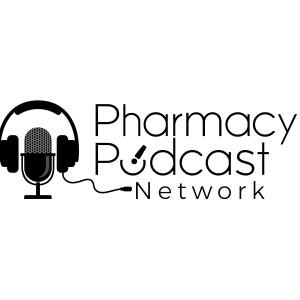
Tuesday Feb 28, 2017
Tuesday Feb 28, 2017
#PharmacyFutureLeaders
Serving the Underserved
Christine Dimaculangan
P4 at Philadelphia College of Pharmacy
Welcome to the Pharmacy Podcast Network, I’m your cohost Tony Guerra for the PharmacyFutureLeaders podcast broadcasting from DMACC’s Ankeny Campus.
Connect with me on Twitter at Tony_PharmD or on YouTube at TonyPharmD where you can find over 700 pharmacy videos supporting my audiobook Memorizing Pharmacology and new book How to Pronounce Drug Names, both available on Amazon.
Today we're going to be talking with Christine Dimaculangan a P4 at Philadelphia College of Pharmacy who has specific interests in serving the underserved, community pharmacy, and public health. Welcome to the pharmacy podcast.
You are in a 0 – 6 program, so you had an early interest in health care, tell me about some early influences you had in deciding on that type of program. You had the interesting choice between rural and urban.
You’re from Jersey, but decided on Philadelphia, what made you choose your college?
I’m from the DC suburbs and the living in Baltimore city was a shock to me at first, but I ended up loving the convenience and vibrancy of a big city. Tell me what you love about living In the city?
Interprofessionalism is something that is now required by the accreditation documents in many health professions, tell me about your unique interprofessional experience with medical students.
You’ve been tagged as a leader by your faculty as you’ve arrived at your P4 year, what innovative practices can you share that you’ve completed especially as it relates to social media, Twitter and Instagram
You have a passion and commitment to community pharmacy, I find that being able to have a certain level of autonomy is what really provides satisfaction for community pharmacists, what kind of services would you want to offer?
You’ve prioritized a mission to serve the underserved, what does that look like after graduation?
A college that has their students for six years instead of four has a bit of an advantage in creating longitudinal opportunities, tell me a little bit about your experiences and how the faculty / city / environment have made you the future pharmacist you are now.
What APPE rotations did you choose when thinking about serving the underserved, do you focus on the clinical, the social, even the business/public health financial?
What blanket advice would you have for new graduates?
Contact information you want to share:
Email, Twitter, LinkedIn, etc.
Twitter and instagram: cadimaculangan
Link to Summer Medical Institute in Philadelphia http://mcophilly.org/smi-philadelphia/
CONTACT: (email: cdimaculangan@mail.usciences.edu)
Contact Dr. Guerra:
On Twitter: Tony PharmD
aaguerra@dmacc.edu
See omnystudio.com/listener for privacy information.
Learn more about your ad choices. Visit megaphone.fm/adchoices
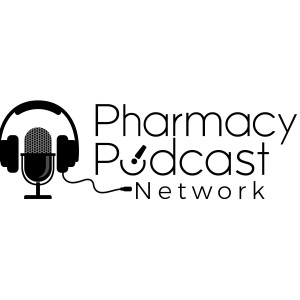
Monday Feb 13, 2017
Monday Feb 13, 2017
#PharmacyFutureLeaders
Research and National Residency Searches
Today we're going to be talking with Sunish Shah, a Student Pharmacist in his final year at the University of the Sciences in Philadelphia. Sunish currently practices as a pharmacotherapeutics tutor at Philadelphia College of Pharmacy and as a Pharmacy Intern at Mercy Philadelphia Hospital.
Sunish is passionate about critical care medicine, infectious disease, mentorship within the profession of pharmacy and clinical research. He has recently been awarded first place for a parenteral nutrition study by the Delaware Valley Society of Health-System Pharmacists.
You are in a 0 – 6 program, so you had an early interest in health care, tell me about the influence your family had on your choice of the broader healthcare profession and narrower focus on pharmacy. Specifically, focus on the importance your family put on volunteerism
You’re from Northern PA, but decided on Philadelphia, what made you choose your college?
I’m from the DC suburbs and the living in Baltimore city was a shock to me at first, but I ended up loving the convenience and vibrancy of a big city. What do you like best about Philly?
Tell me a little bit about the leadership roles you had between your freshman and sophomore year and how much you focus on the pharmacy in that part of your curriculum. At DMACC our students can take prepharmacy classes, but that’s a different experience than taking classes with your future professional classmates.
You’ve been tagged as a leader by your faculty as you’ve arrived at your P4 year, what innovative practices can you share that you’ve completed.
You went to Mid-Year in Las Vegas, tell me about the experience and what you got out. You spent a day talking with residents and their posters, I’d like to hear about that.
You’ve prioritized fit and research interests above location and finances, tell me what you’re looking at as you do your national search for the best fit residency.
A college that has their students for six years instead of four has a bit of an advantage in creating longitudinal opportunities, tell me a little bit about your research experiences especially how a professor moved away, but you continued the research project.
You’ve made a commitment to making an impact at each APPE rotation you’re in, tell me about the clinical progress you’ve made in cardiology, ID, and other clinical practices.
You’ve made a clear choice to go for a residency rather than PhD or Fellowship, tell me how you made that decision.
What does it mean to be a researcher to you, I understand the concept in a broad sense, but what experience do you need in professional school to move that title forward?
12. What blanket advice would you have for pre-pharmacy students?
Contact Guest: Sunish Shah
(email: sshah1741@mail.usciences.edu)
P4 at Usciences COP
https://www.researchgate.net/profile/Sunish_Shah
SPECIAL THANKS to our episode sponsor: USciences
https://www.usciences.edu/admission/
CONTACT DR. TONY GUERRA:
Tony Guerra, Pharm.D. Chair, Instructor Pharmacy Technician Program Des Moines Area Community College aaguerra@dmacc.edu
See omnystudio.com/listener for privacy information.
Learn more about your ad choices. Visit megaphone.fm/adchoices
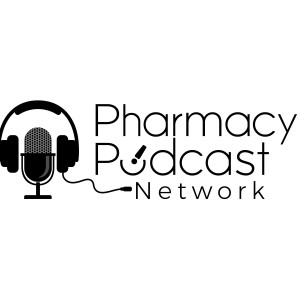
Wednesday Feb 08, 2017
Wednesday Feb 08, 2017
#PharmacyFutureLeaders
A Pharmacist’s Financial Planner
Usually we talk with innovative new pharmacy practitioners and soon to be pharmacy graduates, but today we’ll talk to with an innovative provider to pharmacists.
Tim Baker is a CERTIFIED FINANCIAL PLANNER™ and owner of Script Financial, a fee-only financial planning firm dedicated to helping pharmacists meet their financial goals. He is a graduate of the United States Military Academy and after spending some time in the Army and in the private sector working as a logistician, he decided to pivot to the financial services industry because of his desire to work with and help people 1-on-1. He first worked for a small independent firm before workings specifically with the pharmacy profession.
Tim spends much of his time reading and listening to shows about pharmacy (like the Pharmacy Podcast Show!) to better understand the profession in order to provide the highest quality service to his clients. Tim is based in Baltimore, MD, but works with clients nationwide.
Everyone’s leadership road is different, let’s start with where you are today, and how you became a leader in helping pharmacists with their financial futures.
I lived in Baltimore from 1993 to 1997 and back again from 2001 to 2008, so I got to see two very different real estate markets, one of the first goals many people have is buying a house and you’re in the market for a home, what’s your process for evaluating homes and how it fits into your financial future?
You mentioned that life events tend to be a good place to sit down and find a financial professional, graduation, marriage, having a child, or in my case three children at once, can you help me better understand the process that someone would go through to evaluate a financial planner? Before I give someone my financial information, I want to trust them.
I think one reason people don’t go to a professional is the fear of judgment, you’ve mentioned some things in your background that I felt made you very approachable, your military service and your singular focus on the pharmacy community, you seemed very empathetic to the student loan debt and challenges students have, how do you ease a pharmacist’s concerns?
Can you explain the fiduciary standard of care, you had a good analogy about a suit and fit and how it looked and that there’s a professional for everyone, can you talk more about that.
It seemed that you meet people where they are financially, can you give me an story where you met someone at a financial place and how you helped them.
Normally a financial planner earns their money based on assets under management, but you created a unique way of making your client’s success tied to your success that favors good decisions like paying off high interest credit cards vs. buying securities that may have taxable dividends and lower returns.
Tell us a little about your use of technology for on-demand content and recordings that you provide and how you set the future meetings so your clients aren’t strapped to an appointment time as much.
A Pharmacist’s Financial Planner
Guest: Tim Baker CFP
Twitter: @timbaker856
See omnystudio.com/listener for privacy information.
Learn more about your ad choices. Visit megaphone.fm/adchoices
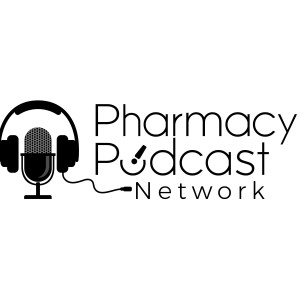
Wednesday Feb 01, 2017
Wednesday Feb 01, 2017
#PharmacyFutureLeaders
Building to a Career in Pharmacy Associations?
Guest: Nikolaus Lawson
P4 at Campbell University College of Pharmacy
Nik Lawson is a 4th year student pharmacist at Campbell University, in Bowies Creek, North Carolina. He received his Bachelor’s degree in Biology from the University of Virginia in 2012, and MBA from Campbell University in December 2016. He’ll complete his PharmD in May 2017. While at Campbell, his greatest experiences have come from working with APhA-ASP as Policy Vice President and the state association, N-CAP, as Chair of the Student Pharmacist Network. After graduating in May, he plans to pursue a two-year residency in Health-System Pharmacy Administration where he can further develop his skills as a clinician and pharmacy leader.
Everyone’s leadership road is a little different; tell us a little bit about your road to pharmacy school and what made you decide on pharmacy as a profession.
You are at Campbell University in North Carolina, which is outside your home state of Virginia, what made you make the move?
When did you decide that the PharmD/MBA was something you wanted to do and tell me a little bit about how the two degrees work in tandem at Campbell?
You’re heavily involved in Association Management, tell us about your path from technician to Student Pharmacist Network Chair at N-CAP [[it’s audio, so I just want to remind myself]]
You got to experience a pharmacy association in an APPE rotation, tell us what you did on a day-to-day and week-to-week basis.
How does the NCAP set priorities for the legislative session?
Tell me a little bit about how attending regional and national meetings impacts your role as a leader in a pharmacy school especially with APhA-ASP and your efforts as the Policy and Advocacy Vice President position.
You’re graduating soon; tell me about APhA’s New Practitioner’s Network and how that might fit into your future.
You’ve been tagged as a leader by the North Carolina Association of Pharmacists, what do you think made you stand out?
Contact information:
E-mail: njlawson0629@email.campbell.edu, ncapspn@gmail.com
LinkedIn: www.linkedin.com/in/nikolaus-lawson
Thanks to our sponsor:
Memorizing Pharmacology Audiobook
https://www.amazon.com/Memorizing-Pharmacology-A-Relaxed-Approach/dp/B01FSR7XZO/
How to Pronounce Drug Names Audiobook
https://www.amazon.com/How-Pronounce-Drug-Names-Preventing/dp/B01MUE361X/
See omnystudio.com/listener for privacy information.
Learn more about your ad choices. Visit megaphone.fm/adchoices
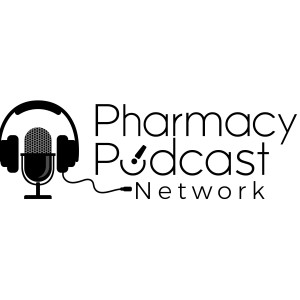
Tuesday Jan 24, 2017
Tuesday Jan 24, 2017
#PharmacyFutureLeaders
Building to a Career in Pharmacy Associations
Guest: Allie Jo Shipman
P4 at Mercer University College of Pharmacy
Welcome to the Pharmacy Podcast Network, I’m your cohost Tony Guerra for the PharmacyFutureLeaders podcast broadcasting from DMACC’s Ankeny Campus.
Connect with me on Twitter at Tony_PharmD or on YouTube at TonyPharmD where you can find over 700 pharmacy videos supporting my audiobook Memorizing Pharmacology and new book How to Pronounce Drug Names, both available on Amazon.
Today we're going to be talking with Allie Jo Shipman who is a final year student pharmacist at Mercer University College of Pharmacy. She is currently in the Mercer PharmD/MBA dual degree program and will graduate in May. She has been involved in pharmacy associations throughout pharmacy school, and she is currently chair of the APhA-ASP Member Engagement Standing Committee and Secretary General for the International Pharmaceutical Students' Federation. She plans to go into association management upon graduation.
Everyone’s leadership road is a little different; tell us a little bit about your road to pharmacy school and what made you decide on pharmacy as a profession.
You are at Mercer University in Georgia, which is outside your home state of South Carolina, what made you make the move?
When did you decide that a PharmD/MBA was something you wanted to do and tell me a little bit about how the two degrees work in tandem at Mercer.
You’re heavily involved in Association Management, but first tell us the difference between an association and a board of pharmacy and their scopes of practice.
You got to experience a pharmacy association in a 5-week APPE rotation, tell us what you did on a day-to-day and week-to-week basis.
How does the GPhA set priorities for the legislative session?
Tell me a little bit about how attending regional and national meetings impacts your role as a leader in a pharmacy school especially with APhA-ASP.
I know a little bit about the APhA-ASP Summer Leadership Institute, but tell me about how you would be selected, what you do there and why you would go multiple times.
You’re graduating soon; tell me about APhA’s New Practitioner’s Network and how that fits into your future.
You’ve been tagged as a leader by the Georgia Pharmacy Association’s CEO, what do you think made you stand out?
What blanket advice do you have?
Allie Jo Shipman
email: alliejoshipman@gmail.com
P4 at Mercer University College of Pharmacy
See omnystudio.com/listener for privacy information.
Learn more about your ad choices. Visit megaphone.fm/adchoices
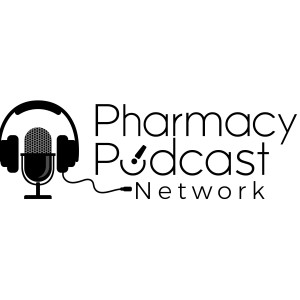
Tuesday Jan 17, 2017
Tuesday Jan 17, 2017
#PharmacyFutureLeaders
The Pharmacist Vlog w/ Kevin Yee
Guest: Kevin Yee
Today we’re talking with Kevin Yee, a pharmacy vlogger with a lot of good advice who started his pharmacy journey at the Massachusetts College of Pharmacy and Health Sciences but is now living in Los Angeles. It’s tough to find people in pharmacy that can show you what the day-to-day life is, but his YouTube channel has ton of content. You can find him on YouTube if you put in Kevin Yee the PharmD in the search bar.
What do you do if you're struggling in school (not academically)?
You're failing in school, academically, what do you do?
What's it like to be married in pharmacy school
After pharmacy school
What's it like to live and work in California
Why do (or don't do) a pharmacy residency
Cal State Long Beach talk
Brown Bag Event with Southern Cal students
How things have changed for you over the three years (you can totally see it in your videos)
Kevin Yee the PharmD
email: subscribers@refugeehustle.com
YouTube: KevinYeethePharmD
Instagram: kevin_the_refugee
See omnystudio.com/listener for privacy information.
Learn more about your ad choices. Visit megaphone.fm/adchoices
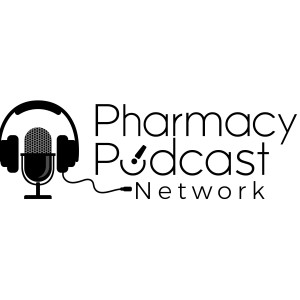
Tuesday Jan 10, 2017
Tuesday Jan 10, 2017
#PharmacyFutureLeaders
On the Road to a Career in Managed Care
Guest: Sara Vande Walle (email: vande894@umn.edu)
P4 at UMN at Elite 8 Finalist Team, AMCP P&T National Competition
Sara is a fourth year pharmacy student at the University of Minnesota with a primary focus on managed care pharmacy. Last year, her team placed in the top 8 nationally competing in the AMCP National P&T Competition. Sara has held many leadership positions during pharmacy school in Phi Delta Chi and in the Minnesota Pharmacy Student Alliance. Sara graduated from UW-Madison in 2013 with a degree in genetics.
Everyone’s leadership road is a little different, tell us what you are doing now and how you got there.
What do you feel is your area of expertise and what are two things that we can really learn from what you do?
Tell us how you became a leader and how your perception changed when that happened.
What’s the worst thing that’s happened to you as a leader and how did you get out of it?
Tell us about a time when you had an epiphany that changed how you thought about something.
What’s the one thing you’re most excited about now?
What blanket advice do you have for someone wanting to get to where you are?
How do you prefer people contact you?
email : vande894@umn.edu , twitter @pharmacyfocus
See omnystudio.com/listener for privacy information.
Learn more about your ad choices. Visit megaphone.fm/adchoices
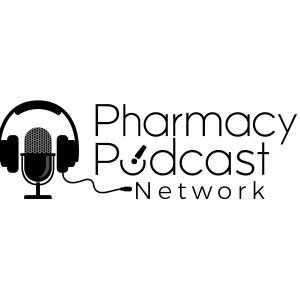
Wednesday Jan 04, 2017
Wednesday Jan 04, 2017
#PharmacyFutureLeaders
International APPEs and Ambulatory Care
Guest: Lindsay Case
P4 at University of Colorado Denver
Welcome to the Pharmacy Podcast Network, I’m your cohost Tony Guerra for the PharmacyFutureLeaders podcast broadcasting from DMACC Health and Public Services Building in Ankeny, Iowa.
Connect with me on Twitter Tony_PharmD or on my TonyPharmD YouTube channel where you can find over 700 videos on drug pronunciation, memorization, and the Top 200 that support my audiobook Memorizing Pharmacology. ]
Lindsay Case is a fourth year pharmacy student at the University of Colorado Denver. She was the Vice-President of the Colorado Student Society of Health-System Pharmacists and currently serves as Chair for the ASHP Pharmacy Student Forum Community and eCommunications Advisory Group. She grew up in O lay thuh, Colorado and received her Bachelor of Science in Biological Sciences with a minor in Biomedical Sciences at Colorado State University, in Fort Collins, Colorado. Today we’ll be talking about rural health, international rotations, and the road to ambulatory care.
1.Everyone’s leadership road is a little different, what was your leadership journey through the career quiz, ASHP, APHA, PLS/Rho Chi and so forth
1b. I’d like to hear more about the University of Colorado campus, it sounds like it’s a bit like Maryland where we had a smaller college of about 5,000 mostly professional students.
1c. Can you tell more about the interprofessional “Dawn” clinic?
Tell me about CA-HEC and how they work with medical and pharmacy students to help you with your APPE rotations, I think you’re in Alamosa, Colorado.
How do students use AirB&B for rotations now and you mentioned there are ways to get discounts.
You mentioned you were really excited about a rotation in Dublin, Ireland and you mentioned there’s another one in Galway, can you tell me how you go set up with that and what you’re looking forward to?
I’ll play devil’s advocate, what’s the point of going abroad?
6. How have do split and use social media between professional and personal?
7.What do you hope to do after your fourth year? You mentioned residency PGY-1, PGY-2, and an interest in rural health care.
How have you narrowed down your list of residency choices and whom do you turn to for advice?
9. Looking back, what parts of the pharmacy opportunities out there that you didn’t know about before?
Can you explain the difference between ambulatory care and community pharmacy for some of our listeners who are thinking about pharmacy as a profession?
How do you prefer people contact you?
Lindsay Case (email: lindsay.case@ucdenver.edu)
P4 at University of Colorado Denver
Email: lindsayncase@gmail.com
Twitter: @LindsayPharmD2B
LinkedIn: www.linkedin.com/in/lindsay-case
See omnystudio.com/listener for privacy information.
Learn more about your ad choices. Visit megaphone.fm/adchoices
